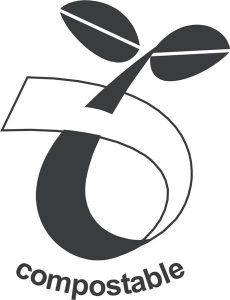Introduction
In Somerset the food waste is collected weekly on the same day as other recycling. It may be different for properties with communal waste collections
Did you know? Reducing your food waste and recycling what is left is one of the best ways to reduce your carbon footprint.
In Somerset, recycled food waste is taken to an anaerobic digestor near Bridgwater and used to make green energy and soil improver for local farms.
Request new, extra or replacement food waste containers
When are my collection days
You can check your collection days online with the My Collection Day search engine.
Missed collections
If your collection has been missed, you can report it online within three working days (not including the initial collection day itself)
Report a missed collection
What we collect
All food waste, cooked or raw, including:
- Meat and fish – including bones and carcasses if they can fit in your brown bin
- Fruit and vegetables
- Bread, pasta and cereal
- Tea bags and coffee grounds – including coffee filter paper
- Cheese and eggs
- Pet food
- Paper kitchen towel and napkins
We are unable to collect
- Plastic bags
- Food packaging – such as aluminium foil, cardboard or plastic
- Liquid food waste – including cooking oil
- Garden waste
- Cat litter, dog, cat or pet waste, dead animals
Food recycling containers
We suggest using the caddy to collect food in your kitchen, then transferring it to the brown bin for collection.
The brown bin has a lid that locks when the handle is pulled forward and can be opened by moving the handle backwards.
Please lock the lid when putting it outside for collection – as this deters pests and avoids spills.
Food waste guidance
Use newspaper to wrap food or line your caddy. Or buy special compostable liners. Only use liners that have the ‘looped seedling’ logo on them. Even those marked ‘biodegradable’ do not degrade fully or quickly enough.
Deterring pests
- Lock the lid of your brown food waste bin whenever it is out for collection.
- Leave it in the shade if possible to avoid flies, particularly in hot weather.
- Keep your caddy clean by lining it with newspaper or compostable liners.
- In hot weather, some residents put food waste in compostable liners into their freezers between collections. This prevents smells, pests and vermin.
- Use washing up liquid to clean your caddy or bin. White wine vinegar is also effective and an environmentally-friendly disinfectant.
Where to buy compostable liners
You can buy these in most large grocery stores. Some retailers offer reusable compostable carrier bags that can be used instead of liners.
It is important to only buy those that have the ‘looped seedling’ logo (pictured below).
We do not endorse any particular brand or supplier, but you need to ensure you buy 100% compostable corn starch based liners.
Plastic bags or biodegradable/degradable bags are not accepted.
Examples of online suppliers:
Trade outlets for local retailers:
Please note – We do not endorse any particular brand or supplier, but you do need to ensure you buy 100% compostable corn starch based liners. Look out for the compostable liner logo. (Certification, EN13432). Plastic bags or biodegradable/degradable bags are not acceptable.

What happens to food waste?
